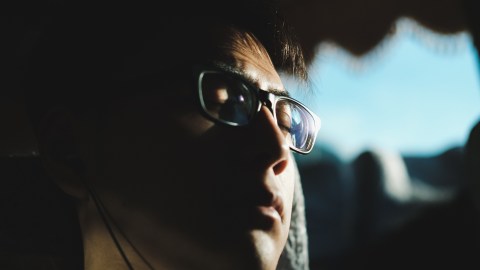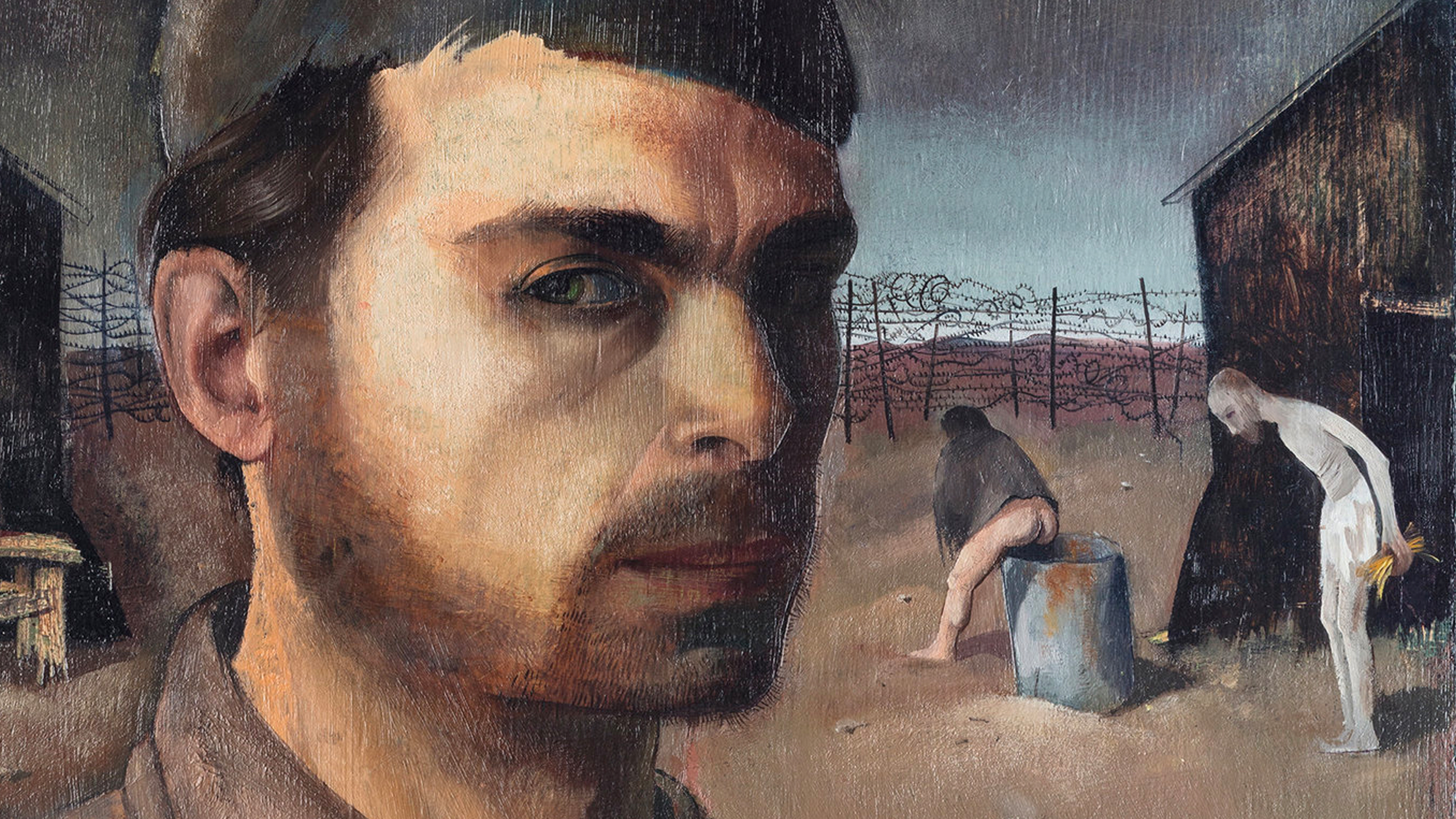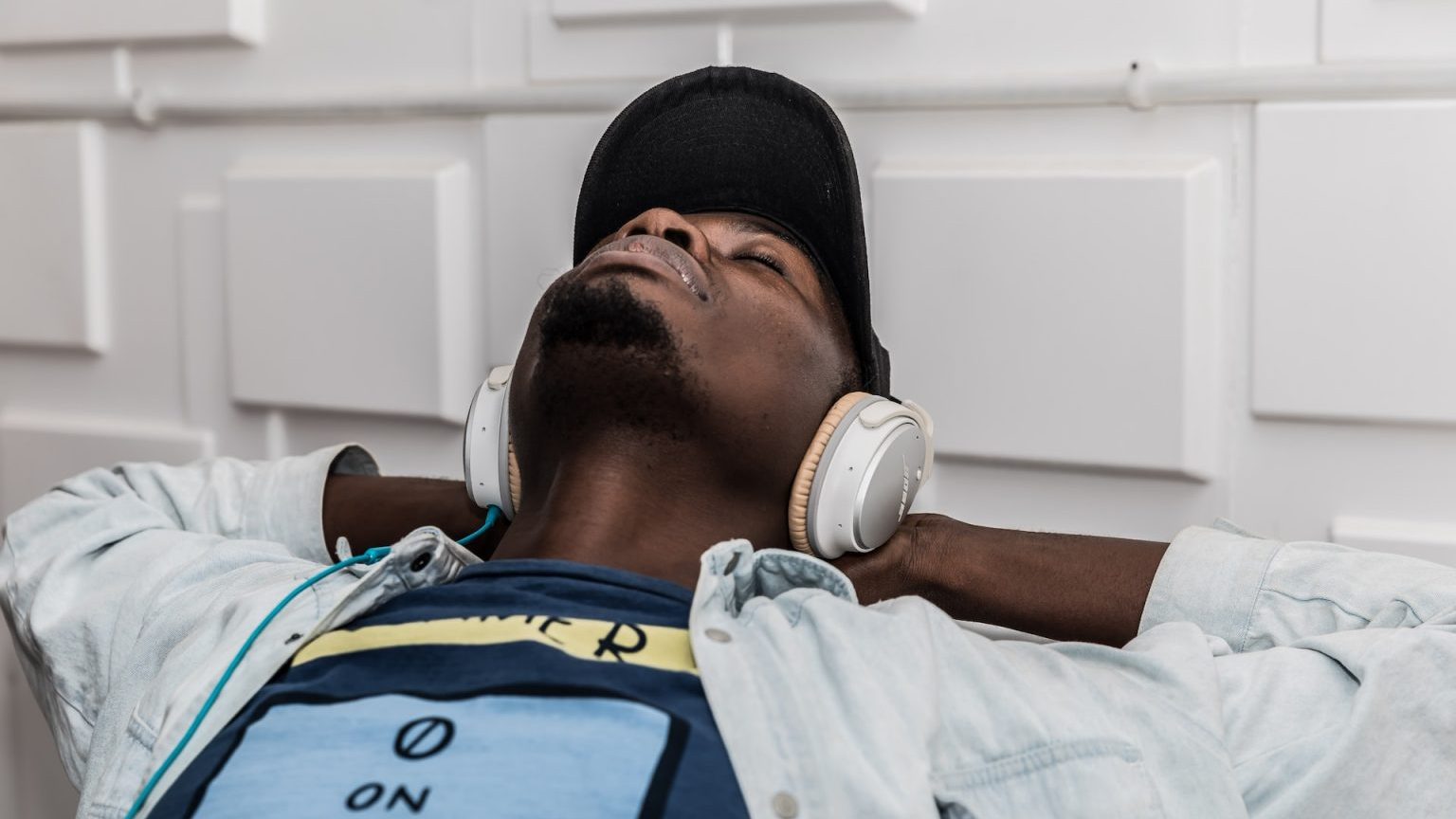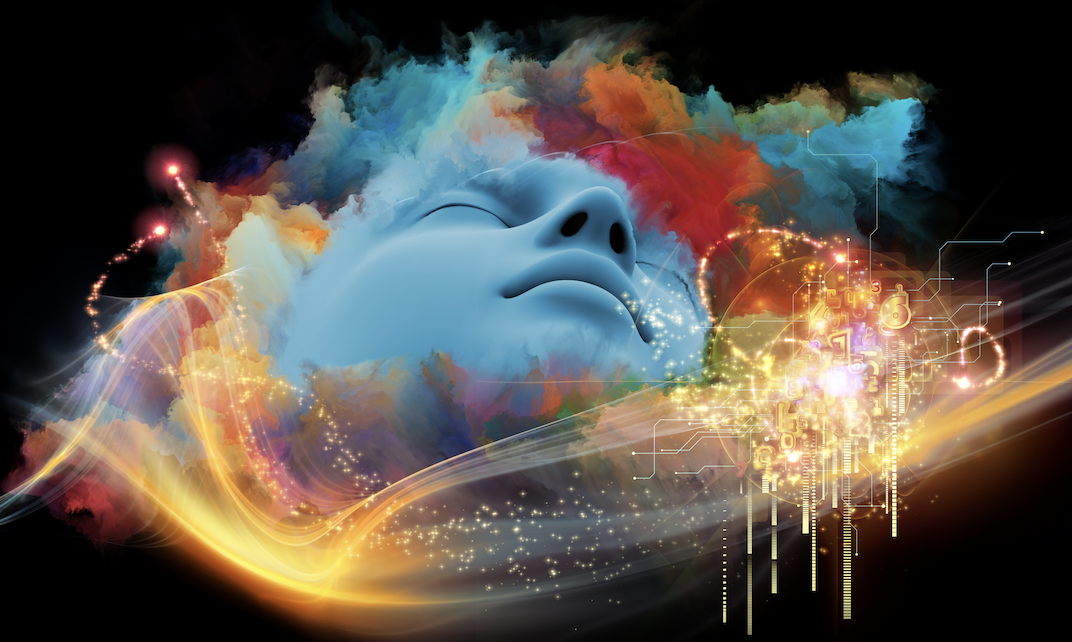The rhythm of the night: How music can help insomnia

Unsplash
Even in sleep, we partake in the becoming of the world,” to utter the echo in Czesław Miłosz’s poem “A Magic Mountain.”
Lying awake at night, I have sometimes found myself turning this idea over in my head. Like millions of slumberless souls, I have suffered with regular bouts of insomnia, which, in my case, were triggered by overworking, psychological pressure, and obsessive thoughts. Insomniac sleep deprivation provoked in me a profound anxiety, shades of paranoia, and the promise of depression. However, during one tempestuous summer a few years ago, I found an aural way to silence it.
Beleaguered in the stifling intensity of two interim jobs, I worked too much, too hard and too long; stress-ridden and marooned in the city, I fell over the edge into a nightly insomnia. Like quicksand, the more I tried to sleep and ignore the freneticism of my racing thoughts, the harder it became to drift off – I couldn’t say how I partook in Miłosz’s becoming. I tried everything, from books on balmy midnight sleepwalks to friendly lectures on temperance. Nothing worked. A sleeping pill prescription was complicated by side-effect trepidation spawned by my state of nervous distress; my mental health suffered and I feared a repeat of depressive episodes. In the past, I had used music to modulate my emotions, so I trialled a kind of self-directed musical hypnosis. Finally, here was something that hit a chord.
After weeks of wakeful anxiety, in the soft strains of music I found a medium that regulated my mood, toned down the stress and tuned into my sleep patterns. Not a total cure for my affliction, but certainly a vital accompaniment. After the temporary projects eventually flourished to a crescendo, music had become the requiem to my insomnia.
This should not have come as a surprise to me considering the scale to which I delved into psychiatric research on the topic at the time. “One of the features which makes music a low-cost alternative to sleep medication is the distracting function of music,” explains Helle Nystrup Lund, a Danish PhD researcher and music therapist at the Unit for Psychiatric Research at Aalborg University Hospital, whose current research is focused on whether music can improve sleep quality for patients suffering from depression and insomnia. “Stress and depression are likely to be followed by worries and thoughts,” she tells me. “Thoughts and restlessness are preventing sleep initiation. Music may distract from feelings and thoughts and help the individual to fall asleep. Calm music supports relaxation and this is also helpful to improve sleep.”
Sleeping in uncertain times
For me and millions of others, insomnia is the product of mental or emotional pressure, which can increase stress levels and engender a tortuously vicious cycle. The recent outbreak of the COVID-19 pandemic has brought with it its own collateral miasma of stressfulness and sleeplessness, a factor reinforced by a scientific paper in the Journal of Sleep Research detailing the quarantine’s inimical effects on stress-inflected insomnia and emotional regulation.
While it may seem negligible compared to the widespread devastation of the coronavirus, issues ranging from epidemiological fears of infection to the economic worries of personal finance are preventing proper sleep. As a 2012 research paper from Korea University suggests, such worries can aggravate the triggers of insomnia, inducing the body to secrete excessive amounts of the hormone cortisol and leading to the hyper-alertness that breeds insomniac states. Quality sleep is not a panacea and cannot resolve all the acute nightmares of the pandemic; however, as subjective experience can attest to, music can be a practical leitmotif for a healthy regimen of rest.
Jimi Tormey, a musician who has also suffered with insomnia, tells me of his own sonic self-medication: “I find that repetition is one of the key musical elements that helps me sleep, but dynamic percussive sounds somehow feel ‘closer’ to me, which can be disruptive when trying to get to sleep,” he affirms. “To silence sleep-preventing thoughts, I listen to minimalist composers and albums that have an overall sense of regularity and calmness to prevent spikes in tempo or timbre.” His account seems to be pitched in unison with scientists at the University of Fribourg’s Division of Cognitive Biopsychology and Methods, who have empirically proven that relaxing music can aid sleep. According to their investigations, soundscapes, classical music and ambient noise can all help to dissolve stress by inducing mental relaxation and muscle sedation.
But what is music? The definition is infamously elusive. We might say that music involves expression and auditory texture, sonic experiences and tone colour – conventionally, we could call it the art of successive and ordered sounds. For the purposes of this discussion, the term ‘music’ will be in the key of sleep: from ambient beats and dreamy soundscapes to a piano’s delicate strains or the cadences of a sitar.
Take, for instance, the melodic framework of the raga from the Indian musical tradition. Derived from the Sanskrit word for the act of dyeing or colouring, the term also signifies the imbuing of positive emotional states. Psychological research led by the National Brain Research Centre in India shows that ragas use different combinations of musical intervals, scales, tonality and tempo to inject rhythmic colour and elicit emotions in the listener. “Neelambari” – an ancient and ubiquitous raga – has long been thought of as a sleep-inducing lullaby, particularly in the context of the southern, Carnatic musical system. Despite some internal disputes about its soporific effects, the hypnotic pulses and cadences of the piece certainly connote a general sense of sleepiness.
“We don’t choose to hear or not in the same way that we can choose to close our eyes,” explains Chris Waller, a researcher at Royal Holloway, University of London, whose work focuses on music in carceral contexts. “Therefore, as Michel Serres suggests, to make our sonic environment feel stable and secure involves ‘ear work,’ which means determining what is meaningful sound and what is noise, and what the meanings behind those sounds are,” he informs me. “Given that music has such a rich internal logic, often very consistent and symmetrical, it can be a useful resource for the mind to grab onto and construct a predictable sonic environment out of.”
Nightly nocturnes
Some findings support the notion that classical music has a positive effect on sleep due to its impact on the parasympathetic nervous system – the network responsible for the body’s ‘rest and digest’ responses. That listening to music can be evocatively somnolent is, of course, far from a novel phenomenon. For centuries, classical composers have honed the ability to convey feeling and emotion in their listenership. In the Western canon, the invocation of sleep-inducing emotion plays out in a slightly different key. Often called the ‘poet of the piano,’ Frédéric Chopin’s poignant intensity and romantic finesse single him out as a composer of particular emotional refinement and therefore the perfect amplifier for insomniacs. A fellow insomniac, Chopin ironically complained that, “meanwhile, my manuscripts sleep and I can’t sleep” in a letter he wrote in 1838 from his winter sojourn in Mallorca.
His famous “Nocturnes” – so named for an evocation of the night – follow in the formal tradition of languidly melodic compositions and are often cited as practical preludes to sleep. In my own times of manic wakefulness, I have often depended on his 21 emotive solo piano pieces for a source of equanimity, with their soothing refrains, serenade-like lyricism and dreamlike legato. “The nocturne is oneiric,” echoes Matthew del Novo in The Metaphysics of Night. “The start of No. 6 in G minor is particularly sleepy as if the notes are shaking drowsiness from them…the notes themselves going off – but not very far – to look for melody, like a mind that wanders into a fantasy by which it is carried away,” he writes. “The slowing pace allows one to drift and Chopin’s talent for ending without ending, in the way one never registers the moment one falls asleep is evident here.” His undulating analysis here describes almost exactly the way I have experienced them – each Nocturne like a peregrination of the mind.
It is not just Chopin’s pianissimo that can exorcize the spirits of sleeplessness. There are reams of popular classical sedatives – from the languorous tempi of Erik Satie’s “Gymnopédies” and Claude Debussy’s “Rêverie” and “Clair de Lune”, to J.S. Bach’s measured violin concertos. Indeed, according to psychological research conducted in the Department of Music at the University of Sheffield, classical music is overwhelmingly the most prevalent genre of music used for sleep. While it is the prevailing prescription, this is because much of it is gently ordered and immersive. Indeed, any slow music of around 60 to 80 beats per minute (BPM) can help us sleep.
Euphoric whispers
As well as euphonic musical structures, ambient soundscapes and the recorded sounds of nature can also be a welcome tonic for those suffering with insomnia and other somnipathies. One example is the sonorous trend of ASMR (autonomous sensory meridian response) videos, which use sonic triggers to induce low-level euphoria and purportedly help with sleep – as is the case with Maya Lane, a postgraduate student in medical anthropology. “I have anxiety that gets worse at night and causes my insomnia. It really heightens all my senses – things like someone talking, a door closing or the pipes in the house can make me feel completely on edge.
“I’ve realized I need something to completely distract my brain away from concentrating on these sounds and help me sleep,” she tells me. “I either listen to the Sleep Whispers podcast – someone telling stories in a whisper ASMR style – or the Headspace [a popular mindfulness app – ed. note] eight-hour soundscapes, which are things like rainforest noises, rain and storm noises. I’m not sure if they cause euphoria, but they definitely help relax me and take my mind off trying to sleep.”
By harmonizing with slow tempos and languid rhythms, both hypnotic sounds and music can lower blood pressure, slow down breathing and encourage the deceleration of heart rate – a synchronization that mimics some of the body’s ‘falling asleep’ processes. As myself and others have discovered, a bedtime routine with a regular relaxing soundtrack sends clear signals to the body to initialize sleep mode and synchronize biological clocks with environmental cues (so-called zeitgebers) such as light. However, the therapeutic or soporific aspect of music is mostly effective in improving sleep indirectly via relaxation. This may help with anxiety and stress-related insomnia, but other bio-physiological sleep disorders such as sleep paralysis and more physical breathing-related issues including sleep apnoea will be unresponsive or less likely to respond directly.
Considering that we spend one third of our lives sleeping (or attempting to do so) the importance of sleep for supporting physical and emotional well-being rings clear as a bell. The echo of an echo: “Even asleep we partake in the becoming of the world.” After sleeplessly hearing his words, I finally understood the true import of Miłosz’s maxim. His reminder that we contribute to the world in ways that might forever be unknown to us is like a somniloquy, a sleep-talking motto about self-awareness. How ironic, then, that my secret of sleep was the opposite: to be blissfully drowned in sound, to be unaware of oneself.
But to be awake, to be besieged by insomnia, does not always correlate to an increased perception of the self. Even as modernity seems to be characterized by the condition of insomnia, it is vital that we listen to our own biological rhythms, to our aural textures of music, and that we keep time with the physiological acoustics of sleep – the rhythm of the night.
Reprinted with permission of Przekrój. Read the original article.





